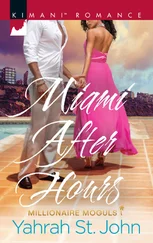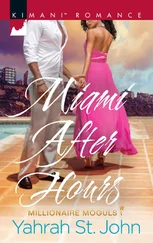In place of yew trees there were two tall ilexes on each side of the graveyard; and, in the field adjoining it, stood four or five enormous sycamores which added as much perhaps to the monumental dignity of the scene as did the roof of the church. It was certainly the roof of the church, high-tilted and sweeping down almost to the ground, that gave the building its character. It was covered with brilliant orange lichen, and Richard thought he had never seen so imposing a roof except upon certain great barns in the north of France.
He was surprised at the smallness of the village and found himself regretting that he had not secured a room for the night in some Selshurst inn. There was evidently no inn of any kind in the hamlet of Littlegate. There was nothing that he could see from where he stood at the church porch except a rambling old farmhouse, a row of ancient cottages facing a still more ancient-looking pond, and a small, neat, nondescript dwelling, which he assumed to be the old parsonage of the place adapted to modern ideas of cleanliness and light.
He promptly made up his mind that it was in that particular house, behind the churchyard wall, that his father had been born and had spent his childhood.
It looked a charming place now but, for all Richard knew, it might have been altered out of all recognition. It might be a completely new vicarage. He found himself without rhyme or reason suddenly prejudiced against the present incumbent of his grandfather’s living, and he gazed at the top of that wall, over which a spray of red roses was waving in the wind, with something bordering upon hostility.
He moved hastily around the church, surveying it from every quarter, and then began searching among the graves for Benjamin and Susanna.
He soon found the place. The old people’s headstone was still legible enough after its fifty years of Sussex rains and frosts and Richard, mechanically removing his hat, as he had got into the habit of doing among the too crowded cemeteries of Catholic France, read without any cynical afterthought the unquestioning assurance of the pious epitaph. Over his head, as he bent above the grave, the long shadow of the little squat tower fell upon the uncut grass and upon the oblong mounds new and old. Above the tower rose the golden weathervane, pointing now towards the east; and above the weathercock darted the great swifts on their clean-cutting, sharply curved wings, as they had done since the day in King Stephen’s reign when the place had been consecrated.
All at once Richard Storm became aware that he was not alone. His pious vigil was being shrewdly and shamelessly observed from a sunny nook under the mossy wall between two upright tombstones. Richard hastily put on his hat and shot an angry glance at the intruder.
A rubicund, quizzical eyed young man he appeared to be, the sleeve of his right arm hanging empty, his left hand holding a paint brush. By his side was a small easel; and on the grass at his feet a cup of water and a palette. He was evidently sketching the church.
Instead of looking away when Richard frowned at him, the young man laid down his brush, threw back his head till it rested upon the surface of the wall, gave a queer little jerk with his shoulder to the stump of his missing arm, and stared at the wayfarer with a fixed and rather supercilious smile.
Confound the fellow! thought Richard. Why the devil can’t he go on with his silly picture? Does he want me to go over there and admire it? To indicate how little interest he took in this arrogant young man’s proceedings he turned sharply on his heel and entered the church. When he had carefully closed the heavy door behind him, he obeyed an irresistible impulse and shot the gigantic iron bolt, barring himself in. The coolness of the interior was quite a shock after the hot sunshine; and for a moment the place seemed dark and tomb-like.
As with regard to the outside of the building the great sloping orange-coloured roof was the dominant feature, so with regard to the interior of it what held a stranger’s attention, to the exclusion of all other interest, was the ponderous Norman arch dividing the small nave from the diminutive chancel.
Apart from this arch, huge, elaborately carved, weighty with historic sećrets, the rest of the church seemed meaningless and without character. The arch dwarfed the pillars, took all dignity away from the windows, and seemed to be endeavouring to draw to itself the natural human piety that would pass it by and press forward towards the simply furnished altar.
The arch seemed to be upholding the barn-like roof above it with a kind of stolid confederacy, as if between these two half-heathen things there existed a dumb conspiracy to substitute some other, earlier worship, for the one that had raised that quiet silver cross and had set in order those unlit candles.
Richard Storm vaguely recalled the fact that out of all England the land of the South Saxons was the last to be converted to Christ.
Half-oblivious to what he did and under the influence of French customs he looked about for some small observance, some slight offering of respect, that remained to be paid to the quiet souls of his dead.
Half-atheist, half-superstitious as his mind had become, among those passionately pagan and passionately medieval friends of his, it seemed to him a bad omen to leave the place his father’s father had served as priest without some act of filial devotion. To kneel, to pray — anyone might do that! He felt a desire for some more objective, more symbolic act. He hesitated for a moment, leaning against the great arch. Then with a glance backwards at the bolted door and a hurried genuflexion he advanced boldly up to the altar, and, striking a match, lit the two candles on either side of the cross.
It took a little time for the two small flames to burn upwards, clear and unflickering, above their pedestals of wax, but when they were well alight, he moved away down the aisle without any further obeisance and ensconced himself in a remote seat under the tower. A single bell-rope hung down above him through a hole in the roof and a long quivering shaft of sunlight, heavy with golden motes, fell upon the floor in front of him.
Between the candles on the altar and this heathen finger of the setting sun obtruded from beyond the planet’s edge, the Norman arch in the centre of the church gathered darkness round it and became itself a thing of darkness.
Richard Storm stretched his legs out in front of him, clasped his hands behind his head and sat motionless, staring at the shaft of light and at the candles.
Suddenly the light faded. The darkness about the arch moved instantly to where he sat and embraced him. The candles on the altar were no longer little pyramids of palpable colour. They became flickering points of flame. The wanderer’s thoughts concentrated themselves on the old dead people from the accident of whose remote encounter — Benjamin Storm with Susanna Talbot — his own appearance in the world at all, the son of his father who was the son of his father, so absolutely depended!
A strange sense came over him of the continuity of the generations and their fatal sequence; and under the power of that feeling he felt the unrolling of the long scroll of his days upon earth as he had never felt it before. Things that had been of primary importance to him, vivid passions, fierce infatuations, savage quarrels, seemed now to fade into complete insignificance, even as the sunset shaft had faded, and to leave him in the presence of deeper, older, more earth-rooted things.
A craving stirred within him to find expression, expression that he and others, bewildered and chance-driven as himself, might hold to and live by, for this mysterious undertone of the earth’s gathered experience, moving through generation after generation of human subconsciousness and binding the ages together.
Читать дальше











